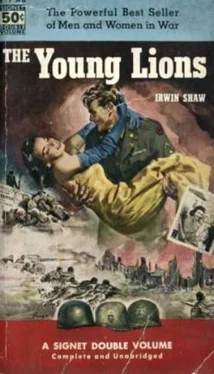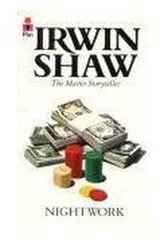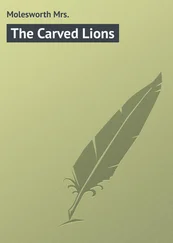Irwin Shaw - The Young Lions
Здесь есть возможность читать онлайн «Irwin Shaw - The Young Lions» весь текст электронной книги совершенно бесплатно (целиком полную версию без сокращений). В некоторых случаях можно слушать аудио, скачать через торрент в формате fb2 и присутствует краткое содержание. Жанр: Классическая проза, на английском языке. Описание произведения, (предисловие) а так же отзывы посетителей доступны на портале библиотеки ЛибКат.
- Название:The Young Lions
- Автор:
- Жанр:
- Год:неизвестен
- ISBN:нет данных
- Рейтинг книги:4 / 5. Голосов: 1
-
Избранное:Добавить в избранное
- Отзывы:
-
Ваша оценка:
- 80
- 1
- 2
- 3
- 4
- 5
The Young Lions: краткое содержание, описание и аннотация
Предлагаем к чтению аннотацию, описание, краткое содержание или предисловие (зависит от того, что написал сам автор книги «The Young Lions»). Если вы не нашли необходимую информацию о книге — напишите в комментариях, мы постараемся отыскать её.
The Young Lions — читать онлайн бесплатно полную книгу (весь текст) целиком
Ниже представлен текст книги, разбитый по страницам. Система сохранения места последней прочитанной страницы, позволяет с удобством читать онлайн бесплатно книгу «The Young Lions», без необходимости каждый раз заново искать на чём Вы остановились. Поставьте закладку, и сможете в любой момент перейти на страницу, на которой закончили чтение.
Интервал:
Закладка:
And, meanwhile, the country, in the full bloom of summer, with the geraniums high and pink and red along the farmers' walls, was shining and lovely in the long perfect days.
By evening, Christian was exhausted. He hadn't ridden a bicycle for years, and in the first hour or two he had gone too fast. Also, twice during the day, shots had been fired at him, and he had heard the bullets snipping by, past his head, and had driven himself frantically out of danger. The bicycle was wavering almost uncontrollably all over the road as he slowly pushed into the square of quite a fair-sized town at sunset. He was pleased, dully, to see that the square was full of soldiers, sitting in the cafes, lying exhausted and asleep on the stone benches in front of the town hall, tinkering hopelessly with broken-down 1925 Citroens in an attempt to get them to move just a few more kilometres. Here, for a few moments, at least, he could be safe.
A drink, he thought, a drink will give me a breathing spell, a drink will keep me going.
He walked stiffly through the open door of a cafe, wheeling the bicycle at his side. There were some soldiers sitting at the back of the room and they looked at him briefly and without surprise, as though it was the most natural thing in the world for German sergeants to enter cafes wheeling bicycles, or leading horses, or at the controls of armoured cars. Christian carefully put the bicycle against the wall and placed a chair against the back wheel. Then he sat down slowly in the chair. He gestured to the old man behind the bar. "Cognac," he said. "A double cognac."
Christian looked around the shadowy room. There were the usual signs in French and German, with the rules for the sale of alcohol on them, and the legend that only aperitifs would be sold on Tuesdays and Thursdays. This was a Thursday, Christian remembered hazily, but the special nature of this particular Thursday might be said to countermand even the regulations of a Minister of the French Government at Vichy. At any rate, the Minister who had delivered himself of the regulations was no doubt running as fast as he could at the moment and would probably be grateful for a little cognac himself. The only law anyone could be expected to observe on the evening of this summer day was the law of flight, the only authority the guns of the First and Third American Armies, not yet heard in this part of the country, but already felt, already exercising a premature and dreadful sovereignty.
The old Frenchman shuffled over with a small glass of brandy. The old man had a beard like a Jewish prophet and his teeth smelled terribly of decay, Christian noticed irritably. Was there no escaping, even in this cool dark place, the odours of ferment and mortality, the scent of dying bone and turning flesh?
"Fifty francs," said the old man, leaning horribly over Christian, his hand still cautiously on the glass.
For a moment Christian thought of arguing with the old thief about the overcharge. The French, he thought, making a good thing out of victory and defeat, advance and retreat, friend and enemy. God, he thought, let the Americans have them for a while, see how happy they'll be about it. He tossed the fifty francs, worn scraps of paper printed by the German Army, on the table. He would have little use for francs, soon, anyway, and he thought of the old man trying to collect on the printed, flimsy German promise from the new conquerors.
Hazily, Christian remembered that other bar in Rennes, long ago, and the group of soldiers with their tunics unbuttoned, loud and boisterous and rich, drinking cheap champagne. No one was drinking champagne now, and no one was loud, and if anyone talked, he spoke in a single low phrase and was answered in a monosyllable. Yes. No. Will we die tomorrow? What will the enemy do to us? Is the road to Rennes passable? Did you hear what happened to the Panzer Lehr Division? What does the BBC say? Is it over yet? Is it over? Dimly, toying with his glass, Christian wondered whatever had happened in the long years to the private in the Pioneers he had reported for improper conduct. Confined to barracks for a month, Christian thought, leaning back against his bicycle, how wonderful it would be to be confined to barracks for a month. Confine the First American Army to barracks for a month, confine the Eighth Air Force, confine all Austrians in the German Army, for improper conduct…
He sipped gently at the cognac. It was raw and probably not even cognac. Probably made three days ago and doctored with plain spirits. The French, the miserable French. He looked at the old man behind the bar, hating him. He knew that the old man had been dragged out of doddering retirement for this week's work. Probably a sturdy fat merchant and his plump, sweaty wife owned this place, and had run it until now. But when they saw how things were going, had seen the first scum of the German tide racing through the town, they had resuscitated the old man and put him behind the bar, feeling that even the Germans would not take out their venom on such a poor specimen. Probably the owner and his wife were tucked away somewhere in a safe attic, eating a veal steak and a salad, with a bottle of strong wine, or they were climbing into bed with each other. (Remember Corinne in Rennes, the heavy flesh and the milkmaid's hands, and the coarse dyed ropes of hair.) The owner and his wife, chubbily linked in a warm feather bed, were probably chuckling at this moment at the thought of the drained soldiers paying fantastic prices to Papa in their dirty estaminet, and at the dead Germans all along the road, and at the Americans rushing towards the town, eager to pay even higher prices for their wretched raw alcohol.
He stared at the old man. The old man stared back, his little pebbles of eyes black and insolent, secure and defiant in the rotting, ancient face. Old man with thousands of printed, useless francs in his pockets, old man with bad teeth, old man who felt he would out-live half the young men sitting silently in his daughter's establishment, old man roaring within him at the thought of what dire handling lay ahead for these almost-captured and almost-dead foreigners huddled around the stained tables in the dusk.
"Monsieur wishes…?" the old man said in his high wheezy voice that sounded as though he were listening to a joke no one else in the room had heard.
"Monsieur wishes nothing," Christian said. The trouble was, they had been too lenient with the French. There were enemies and there were friends, and there was nothing in between. You loved or you killed, and anything else you did was politics, corruption and weakness, and finally you paid for it. Hardenburg, faceless in Capri in the room with the Burn, had understood, but the politicians hadn't.
The old man veiled his eyes. Yellow, wrinkled lids, like old dirty paper, hooded down over the black, mocking pebbles of his pupils. He turned away and Christian felt that somehow the old man had got the better of him.
He drank his cognac. The alcohol was beginning to have an effect on him. He felt at once sleepy and powerful, like a giant in a dream, capable of slow, terrible movements, and enormous, semi-conscious blows.
"Finish your drink, Sergeant." It was a low, remembered voice, and Christian looked up, squinting through the increasing evening haze at the figure standing before his table.
"What?" he asked stupidly.
"I want to talk to you, Sergeant." Whoever it was, was smiling.
Christian shook his head and opened his eyes very wide. Then he recognized the man. It was Brandt, in an officer's uniform, standing over him, dusty, thin, capless, but Brandt, and smiling.
"Brandt…"
"Sssh." Brandt put his hand on Christian's arm. "Finish your drink and come on outside."
Brandt turned and went outside. Christian saw him there, standing against the cafe window, with his back to it, and a ragged column of labour troops trudging past him. Christian gulped down the rest of the cognac and stood up. The old man was watching him again. Christian pushed the chair away and carefully grabbed hold of the handle-bars of the bicycle and wheeled it towards the door. He could not resist turning at the door for one last encounter with the Frenchman's pebbly, mocking eyes, that remembered 1870, Verdun, the Marne and 1918. The old man was standing in front of a poster, printed in French but inspired by the Germans, of a snail horned with one American flag and one British flag, creeping slowly up the Italian peninsula. The words on the poster ironically pointed out that even a snail would have reached Rome by now… The final insolence, Christian felt. Probably the old man had put the poster up this very week, straight-faced and cackling, so that every fleeing German who came by could look and suffer.
Читать дальшеИнтервал:
Закладка:
Похожие книги на «The Young Lions»
Представляем Вашему вниманию похожие книги на «The Young Lions» списком для выбора. Мы отобрали схожую по названию и смыслу литературу в надежде предоставить читателям больше вариантов отыскать новые, интересные, ещё непрочитанные произведения.
Обсуждение, отзывы о книге «The Young Lions» и просто собственные мнения читателей. Оставьте ваши комментарии, напишите, что Вы думаете о произведении, его смысле или главных героях. Укажите что конкретно понравилось, а что нет, и почему Вы так считаете.











